★★★
“Game of Thrones meets Japanese anime humour”
 “Akame ga kill” can be translated as “Akame kills by slashing” and yes, she and her comrades do that and much more! Though, strangely enough Akame is not really the main character of the series, but young teen boy Tatsumi. Honestly, I wonder why the title character is not at the center of a show. But who cares as long as the show is good? And there is certainly no shortage of action heroines to be found therein.
“Akame ga kill” can be translated as “Akame kills by slashing” and yes, she and her comrades do that and much more! Though, strangely enough Akame is not really the main character of the series, but young teen boy Tatsumi. Honestly, I wonder why the title character is not at the center of a show. But who cares as long as the show is good? And there is certainly no shortage of action heroines to be found therein.
Let’s start with the plot of this fantasy anime series from 2014. Young Tatsumi (Saitô) comes into the capital of the Empire. Hoping to work his way up the ranks in the army, and send earnings back to his poor village, he’s quickly disillusioned when he’s tricked out of his money. A wealthy girl and her family offers him shelter, but in the night the infamous rebel group “Night Raid” attacks and kills all of the inhabitants of the house. They give Tatsumi a choice: join them, or die! Tatsumi is hesitant, until they show him that the two friends with whom he started out from his village, were tortured and slain by rich perverts for pleasure.
The truth of the country is then revealed. The young king is manipulated by an evil advisor, and the government is corrupt and consists of a rich elite who exploit the poor by taxes or by torturing them. Night Raid is a group of people, mostly unknown to the authorities, who want to overthrow the government. The advantage the group have is possession of so-called “Imperial Arms”, magical weapons that can do wonders. Each has its own special ability, and can typically be used only by a carrier to whom it responds emotionally. Unfortunately, their opponents also have these kind of weaponry. They are a newly formed group of the Empire called the “Jaegers” (“Jäger” is the German word for “hunter(s)”), under the leadership of the gruesome General Esdeath.
Let battle commence! For Akame ga kill is essentially a Battle Royale-esque anime version of Game of Thrones – though with every one of the main characters carrying Imperial Arms, all parties have an equal chance. And in common with Thrones, there are a lot of strong female characters on both sides, to the extent that they largely overshadow the male characters.
On the side of the rebels, you’ll find the thief Leone (Asakawa) who can turn into a feline beast with incredible regeneration abilities; the pink-haired Mine who wields a very big gun, triggered by the power of her own emotions; the socially awkward Sheele who uses giant scissors (it’s not as ridiculous as it sounds); and a restrained assassin, the title-giving Akame (Amamiya), as well as two male characters. All of them guided by Najenda, a former general of the empire, with a mechanical arm and an eye patch. Later on, they are joined by Chelsea, a saucy girl who is able to turn into anyone from a little cat to a two-metre man thanks to her magical make-up. Don’t ask, just go with it…
The other side responds, among the male characters, with fanatic guard Seryu Ubiquitous, who plays judge and hang(wo)man in one, and is probably the least likable character of the show. She owns a little magical dog that can become a giant beast, eat opponents and turn her body members into weapons. Then there’s Kurome, the little sister of Akame, who can command up to six dead people to do her bidding. And all of them are led by the sadistic General Esdeath. Imagine Elsa from Frozen having grown up to become a Nazi with very big… ahem… eyes… In the last quarter, also introduced are the so-called Rakshasa demons who have no magical weapons, but are specially trained assassins, although they don’t get any backstory.

There are a lot of fights between the characters on these two sides. The series follows the GoT model of killing off main characters one by one, be they good or bad; you start wondering if any one will still be alive for the final fights. But rest assured, there will be some, Surprisingly – attention: spoiler – Tatsumi is not the big winner in the end, despite being the center of the story. Obviously the writers of the show eventually remembered that the show’s title had Akame in it, so the big final duel is fought between Akame and General Esdeath.
Though… young Tatsumi is really favoured by the ladies, it has to be said: While feline Leone hardly made any effort to conceal that she had the hots for him, also Mine fell in love with him, clumsy Sheele connected with him, Akame seems to be touched by him, Najenda liked him and even the otherwise cold-hearted General Esdeath decided, after just having a glimpse, that she was in love with him. Cut to her half-naked with him in her bedroom!
The big problem I have with this series is that it is morally very dubious. Both sides kill with a similar lack of mercy, and don’t really care if you are just a normal guy without their powers. If you are on the wrong side, you basically deserve to die. It reminds me of something my chemistry teacher once jokingly said: “I cannot see any difference between right- and left-wing radicals because they don’t show any difference in the way they react!” [Jim: Ah, GirlsWithGuns.org. Come for the girls with guns, stay for the chemistry jokes!]
In my judgement, “Night Raid” don’t come off as better than the “Jaegers”. Everyone seems just too eager to kill the other side. Even sisters Akame and Kurome think it’s necessary to kill the other despite their family love. General Esdeath commands their squad, if they should come across Tatsume, to capture him alive – as long as it is possible, because the mission comes first. Their motivations – justice (or what Seryu thinks justice is), revenge, loyalty to the empire – may differ but their methods do not. And I have to say, I couldn’t avoid the impression that the series enjoyed showing the graphic violence happening to all the characters, a little bit too much.
 Honestly, I do have a big problem identifying with any of the dramatis personae. Their morality is up for grabs; even Tatsumi is too ready to kill those he doesn’t know to “free the people”. Actually, I don’t see the average Joe or Jane suffering very much from the “evil” regime. The normal people in the cities or at the market seem mainly to go about their business; I don’t hear them complaining about supression or the excessive taxes.
Honestly, I do have a big problem identifying with any of the dramatis personae. Their morality is up for grabs; even Tatsumi is too ready to kill those he doesn’t know to “free the people”. Actually, I don’t see the average Joe or Jane suffering very much from the “evil” regime. The normal people in the cities or at the market seem mainly to go about their business; I don’t hear them complaining about supression or the excessive taxes.
In the end, I was left with the impression we witnessed a feud between two powerful groups. who just fight for power. Equally distracting, the “evil guys” are depicted with some sympathy; in Wave, the Jaegers have a character that’s essentially their Tatsumi. Good or bad, the survivors always mourn the friends and comrades they lose in battle, and some on the “wrong” side even survive to build a better world. I guess my issue is, none of the characters ever question what they are doing. Yes, they may regret losing people and admit that they are killers. But they always seem to think that the purpose justifies the means – an attitude with which I have a basic philosophical problem.
Also, the combination of Game of Thrones grimdark and goriness with awkward Japanese anime humour does not really go well together IMHO. It’s really up to you if you can live with quirky character behaviour, in the midst of a dark and serious fantasy setting. The ending must rank among the most down-beat endings of any anime series. The reason may be due to another parallel with Game of Thrones: the studio ran out of the manga to turn into anime episodes, and had to invent its own ending.
So, a fan of the story can decide between two different ones. Spoilers. The manga eventually had Tatsumi marrying Mine with whom he was – to quote Shakespeare – in “a merry war” and had two babies with her. The anime ends with him dying in battle, in the arms of Akame. She fights Esdeath, who then encloses herself, to die with her beloved Tatsumi in an ice block that she shatters. The choice is yours. But after the final end title, is a little postscript to shows Akame will continue her assassin work among the lawless, quite probably the last survivor of “Night Raid” and this story.
Dir: Tomoki Kobayashi
Star (voice): Sora Amamiya. Sôma Saitô, Yu Asakawa, Risa Mizuno
 This feels like one of the first anime releases to get an official release in the West, and to be honest, the animation in particular is showing its age. It couldn’t be much more eighties, if the heroine had big hair and wore legwarmers while listening to her Sony Walkman. That said, when you get used to the relatively simple style, it’s decent enough. We are introduced to the post-WW3 world and in particular, the city of Olympus, which was designed to be a utopian environment for survivors. However, like all utopias, it failed to take into account human nature. In particular, some are very concerned by the prevalence of biodroids. These artificial creations were intended to be humanity’s servants, yet for their opponents, feel increasingly more like our masters.
This feels like one of the first anime releases to get an official release in the West, and to be honest, the animation in particular is showing its age. It couldn’t be much more eighties, if the heroine had big hair and wore legwarmers while listening to her Sony Walkman. That said, when you get used to the relatively simple style, it’s decent enough. We are introduced to the post-WW3 world and in particular, the city of Olympus, which was designed to be a utopian environment for survivors. However, like all utopias, it failed to take into account human nature. In particular, some are very concerned by the prevalence of biodroids. These artificial creations were intended to be humanity’s servants, yet for their opponents, feel increasingly more like our masters.




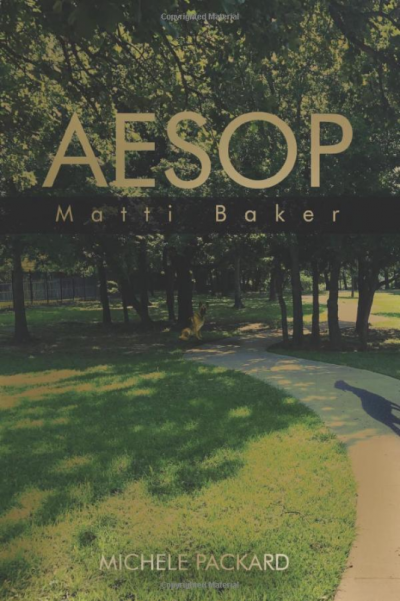 Matti Baker has always been… unusual. She was adopted as a child, and subsequently discovered her mother was an FBI special agent who died while giving birth to Matti on a mission. She breezed through high school, and after graduation, began training to become a contractor for a private agency, carrying out “special” tasks, under the (rather vague, and entirely deniable) auspices of the US government. On successful completion of the four-year course, Matti begins missions, such as neutralizing terrorists. She also meets Tom, who becomes her husband and they have three kids – triplets born on September 11, 2001. But, in 2015, the tables are turned, and Matti becomes the target for some highly-motivated and thoroughly unpleasant enemies, who are seeking vials in her possession, and won’t take “No” for an answer.
Matti Baker has always been… unusual. She was adopted as a child, and subsequently discovered her mother was an FBI special agent who died while giving birth to Matti on a mission. She breezed through high school, and after graduation, began training to become a contractor for a private agency, carrying out “special” tasks, under the (rather vague, and entirely deniable) auspices of the US government. On successful completion of the four-year course, Matti begins missions, such as neutralizing terrorists. She also meets Tom, who becomes her husband and they have three kids – triplets born on September 11, 2001. But, in 2015, the tables are turned, and Matti becomes the target for some highly-motivated and thoroughly unpleasant enemies, who are seeking vials in her possession, and won’t take “No” for an answer.


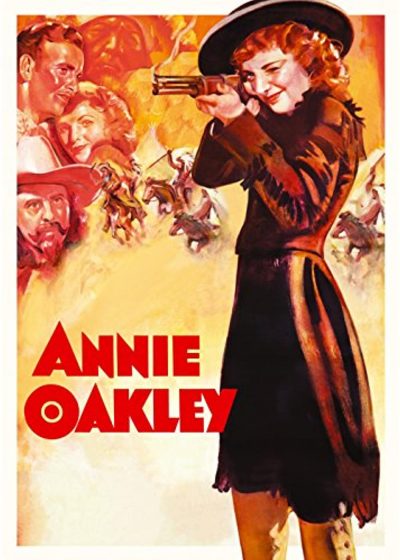 While not exactly an accurate retelling of the life of noted sure-shot Annie Oakley, this is breezily entertaining. Indeed, you can make a case for this being one of the earliest “girls with guns” films to come out in the talking pictures era. There’s no denying Oakley (Stanwyck) qualifies here. The first time we see her, she’d delivering a load of game birds – all shot through the head to avoid damaging the flesh – to her wholesaler. When barnstorming sharpshooter Toby Walker (Foster) blows into town, Annie ends up in a match with him, which she ends up throwing, due in part to her crush on him. She still gets a job alongside Walker, in the Wild West show run by the renowned ‘Buffalo Bill’ Cody (Olsen) and his partner, Jeff Hogarth (Douglas). But Annie and Toby’s relationship fractures after he accidentally shoots her in the hand, while concealing an injury affecting his sight.
While not exactly an accurate retelling of the life of noted sure-shot Annie Oakley, this is breezily entertaining. Indeed, you can make a case for this being one of the earliest “girls with guns” films to come out in the talking pictures era. There’s no denying Oakley (Stanwyck) qualifies here. The first time we see her, she’d delivering a load of game birds – all shot through the head to avoid damaging the flesh – to her wholesaler. When barnstorming sharpshooter Toby Walker (Foster) blows into town, Annie ends up in a match with him, which she ends up throwing, due in part to her crush on him. She still gets a job alongside Walker, in the Wild West show run by the renowned ‘Buffalo Bill’ Cody (Olsen) and his partner, Jeff Hogarth (Douglas). But Annie and Toby’s relationship fractures after he accidentally shoots her in the hand, while concealing an injury affecting his sight.









 I previously reviewed the ninth volume in the Wardstone Chronicles series,
I previously reviewed the ninth volume in the Wardstone Chronicles series, 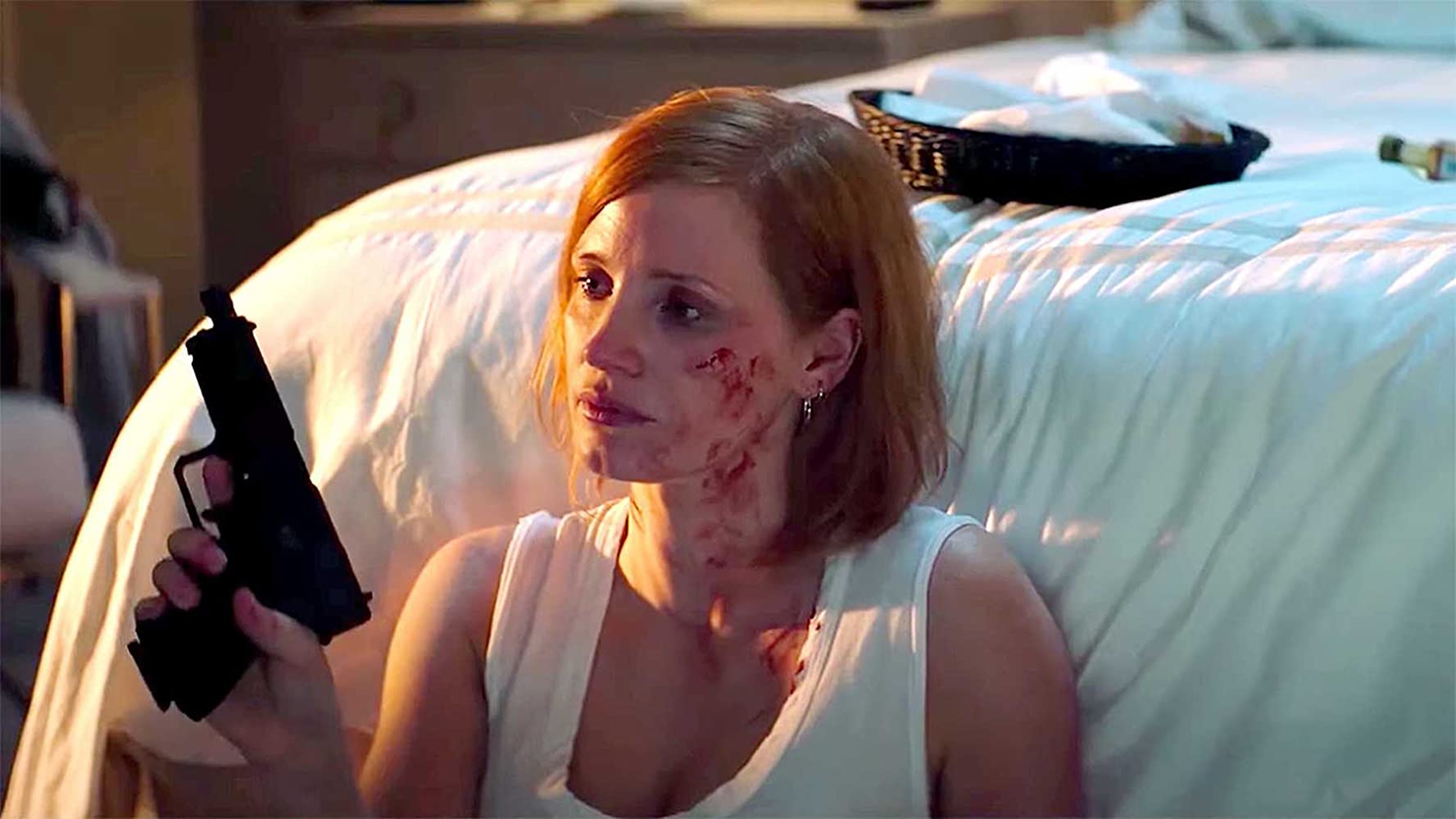 It has been a rough year for action heroines at the cinema. Actually, it has been a rough year for everyone everywhere, thanks to COVID-19. But for the purposes of this site, we have been sadly lacking the kind of tentpole releases which we usually write about over the summer. Wonder Woman 1984, for example, was to have come out in June. But with all venues bar the few remaining drive-ins closed, that was moved first to August, then October [and I don’t know about you, but I’m still not comfortable with the concept of cinema going]. Disney’s live-action version of Mulan opted to bypass theatres all together, and will instead be released on their streaming service.
It has been a rough year for action heroines at the cinema. Actually, it has been a rough year for everyone everywhere, thanks to COVID-19. But for the purposes of this site, we have been sadly lacking the kind of tentpole releases which we usually write about over the summer. Wonder Woman 1984, for example, was to have come out in June. But with all venues bar the few remaining drive-ins closed, that was moved first to August, then October [and I don’t know about you, but I’m still not comfortable with the concept of cinema going]. Disney’s live-action version of Mulan opted to bypass theatres all together, and will instead be released on their streaming service.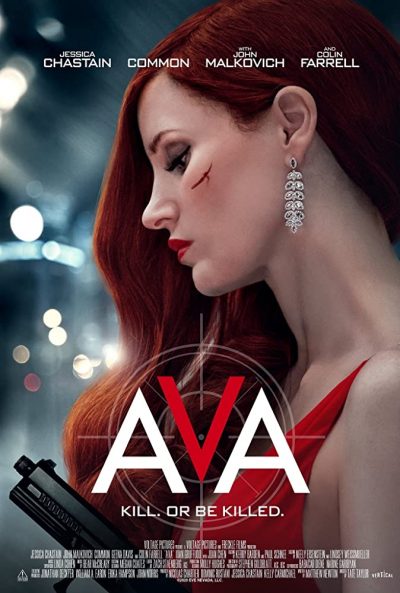 The above paragraph is lean, mean and would have made for a perfectly decent movie. However, the script apparently decides it’s not enough – perhaps Chastain wanted something into which she could sink her dramatic teeth. For we get a whole slew of subplots and conflicts thrown on top. These include, but are not limited, to the following. Ava is a recovering alcoholic. Ava is estranged from her sister (Weixler). Ava had a previous relationship with her sister’s boyfriend, and there are still feelings there. He has a gambling problem. Ava caught her father having an affair, which led to her leaving home. It also caused Ava to break ties with her mother, played by Geena Davis.
The above paragraph is lean, mean and would have made for a perfectly decent movie. However, the script apparently decides it’s not enough – perhaps Chastain wanted something into which she could sink her dramatic teeth. For we get a whole slew of subplots and conflicts thrown on top. These include, but are not limited, to the following. Ava is a recovering alcoholic. Ava is estranged from her sister (Weixler). Ava had a previous relationship with her sister’s boyfriend, and there are still feelings there. He has a gambling problem. Ava caught her father having an affair, which led to her leaving home. It also caused Ava to break ties with her mother, played by Geena Davis. It’s nice to be reminded of why I’m generally averse to romance in my reading – particularly poorly written and unconvincing romance, like we get here. An interesting scenario with potential gets bogged down in gooey mush during the second half: let’s just say, there are phrases such as “my tummy goes all tingly again.” Yes: again… If I wasn’t already committed by that stage, being more than half-way through a 500+ page book, that sentence might well have led to this ending up as a Did Not Finish. Instead, I figured I’d at least get a review out of it. You’re welcome.
It’s nice to be reminded of why I’m generally averse to romance in my reading – particularly poorly written and unconvincing romance, like we get here. An interesting scenario with potential gets bogged down in gooey mush during the second half: let’s just say, there are phrases such as “my tummy goes all tingly again.” Yes: again… If I wasn’t already committed by that stage, being more than half-way through a 500+ page book, that sentence might well have led to this ending up as a Did Not Finish. Instead, I figured I’d at least get a review out of it. You’re welcome.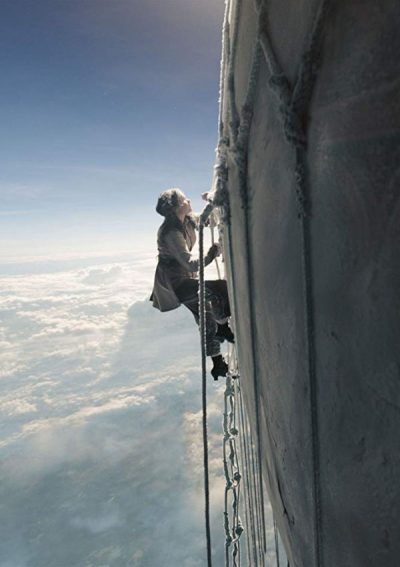 I was genuinely stoked when I got to the end of this one, which details the derring-do of 19th-century pioneers James Glaisher (Redmayne) and Amelia Wren (Jones). The former is a scientist in the fledgling field of meteorology, who wants to obtain data from the upper atmosphere. The latter is a balloon pilot, carrying on despite the death of her husband on a previous flight. Together, they team up, to fly higher than any person had ever gone before. Indeed, further than even they wanted to go, as a frozen valve prevents them from descending when they need to do so. With Glaisher out of commission through oxygen deprivation, it’s up to Wren to climb, by herself, up the outside of the balloon, in order to reach the top and clear the valve.
I was genuinely stoked when I got to the end of this one, which details the derring-do of 19th-century pioneers James Glaisher (Redmayne) and Amelia Wren (Jones). The former is a scientist in the fledgling field of meteorology, who wants to obtain data from the upper atmosphere. The latter is a balloon pilot, carrying on despite the death of her husband on a previous flight. Together, they team up, to fly higher than any person had ever gone before. Indeed, further than even they wanted to go, as a frozen valve prevents them from descending when they need to do so. With Glaisher out of commission through oxygen deprivation, it’s up to Wren to climb, by herself, up the outside of the balloon, in order to reach the top and clear the valve.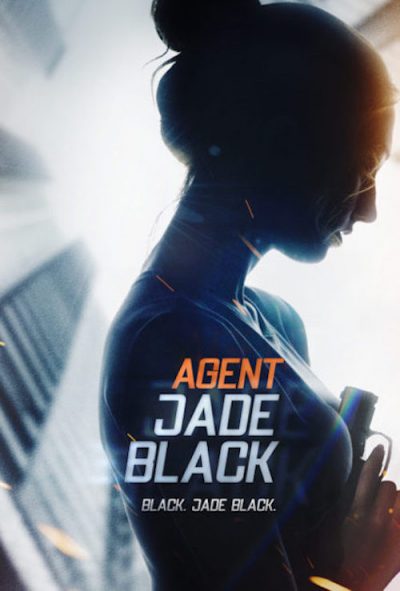 This originally was going to be included in my preview for the year, since it showed up in the IMDb with a release date of January 7, 2020. But on Googling, I found it already had seeped out on Tubi, a free movie channel. At time of writing, this would appear to be the first review written about it anywhere, though it should be considered less a preview than a dire advance warning. Indeed, I could condense the whole thing into one word: “Don’t.” For a more pedestrian, poorly-executed excuse for an action film, you’d be hard pushed to find. Right down to the initials of its lead character and the tag-line on the poster (right), this possesses aspirations it fails miserably to achieve. On the plus side, 2020 can really only go up from here.
This originally was going to be included in my preview for the year, since it showed up in the IMDb with a release date of January 7, 2020. But on Googling, I found it already had seeped out on Tubi, a free movie channel. At time of writing, this would appear to be the first review written about it anywhere, though it should be considered less a preview than a dire advance warning. Indeed, I could condense the whole thing into one word: “Don’t.” For a more pedestrian, poorly-executed excuse for an action film, you’d be hard pushed to find. Right down to the initials of its lead character and the tag-line on the poster (right), this possesses aspirations it fails miserably to achieve. On the plus side, 2020 can really only go up from here. Lauren Pierce (Noble) is an expert archer, leading her high-school team. However, after she rescues a friend from sexual harassment, she finds herself on the wrong side of justice, and is sent to “Paradise Trails”, an incongruously-named juvenile detention facility, where harsh discipline and indefinitely extended sentences are the order of the day. And wouldn’t you know it, the place is run by a former Olympic archer – Bob Patrice (Sage) and his creepy son, Michael (Terry). It’s not long before Lauren is plotting an unofficial departure, along with new friend Becky (Mason), who knows the truth about what’s going on behind the scenes. When they get evidence proving it during their exit, they become the hunted as Bob and Michael will go to any lengths to stop the truth from getting out.
Lauren Pierce (Noble) is an expert archer, leading her high-school team. However, after she rescues a friend from sexual harassment, she finds herself on the wrong side of justice, and is sent to “Paradise Trails”, an incongruously-named juvenile detention facility, where harsh discipline and indefinitely extended sentences are the order of the day. And wouldn’t you know it, the place is run by a former Olympic archer – Bob Patrice (Sage) and his creepy son, Michael (Terry). It’s not long before Lauren is plotting an unofficial departure, along with new friend Becky (Mason), who knows the truth about what’s going on behind the scenes. When they get evidence proving it during their exit, they become the hunted as Bob and Michael will go to any lengths to stop the truth from getting out.